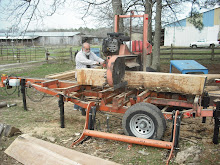Some years ago several Alabama legislators questioned whether or not the state school board possessed the competence to govern the two-year system. True the college system seems to present a considerable challenge to the already burdened K-12 system suggesting some need for a separate regulatory body.
I remain unconvinced. I am sure, however, that the Alabama College System needs to decide if we are to be the last two years of high school or the first two years of college. We have for too many years tried to be both.
If the college system is to be all things to all people. If the original mission of the two-year college system is "To provide the first two years of college education to underserved rural populations" and later merged with " To retrain and re-create careers for our citizens and lifelong educational opportunities", then a number of conditions must be met.
First, We must have realistic assessment of the need for skilled technical workers. This requires only one simple common sense question: " What sorts of employment will be available in the future for this specific training?" Field of dreams thinking on this matter has some merit but it is somewhat unfair to put thousands of students through the considerable time and expense of a technical program knowing that one in ten will have employment in that field. It is unfair to the taxpayer as well, since this investment of state money will be forced to find a place in another state.
Second, We must align more closely with senior institutions. The Alabama State Board of Education, or whoever is actually in charge of the college system, could make the simple switch from "duty days" to "contact hours". This change would allow colleges to set calendars to closely resemble those schools chosen by our transfer students. Much progress has been made in coordinating our academic offerings with the senior institutions. Much remains to be done.
Third, We must improve our relationship with the high schools. We should have more than loose talk about articulation. With the students as well as the instructors. If the college system is to remain part of K-14 then remediation should take place in cooperation with the high schools. If we are to be one and two in the six year college system we need separate regulation and a complete overhaul of the academic catalog. Although there is some debate over the certifiable time needed to complete a "two year" technical program that has non-transfer exit points other states seem to have little trouble making the adjustment.
In short we need to provide for the seamless transfer of our students to the upper level institutions and/or seamless transfer to the world of work in order to become a truly effective institution.

